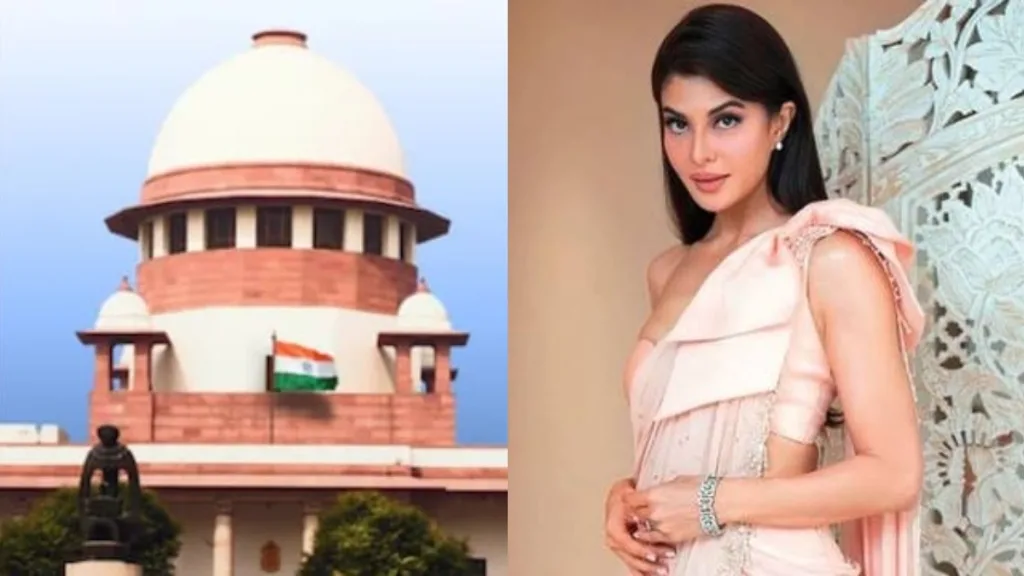Actor Jacqueline Fernandez has encountered a significant legal setback after the Supreme Court refused to entertain her plea seeking to quash the ₹215-crore money laundering case filed against her by the Enforcement Directorate (ED). This case is connected to alleged conman Sukesh Chandrashekhar, who is accused of orchestrating a massive extortion racket. The decision by the apex court means that the legal proceedings against the actor will continue, keeping her embroiled in a high-profile and complex financial crime investigation.
The actor had previously moved the Supreme Court seeking a stay of trial after the Delhi High Court dismissed her quashing plea in July. As per Live Law India, on Monday, a bench comprising Justices Dipankar Datta and A.G. Masih formally dismissed Jacqueline’s petition. However, the bench granted her the crucial liberty to approach the court at an “appropriate stage of the proceedings.” This nuanced ruling suggests that while her current plea was premature, she may have grounds to challenge the case further as it progresses.
Mukul Rohatgi, the prominent lawyer representing Jacqueline Fernandez, argued that the prosecution’s case primarily revolved around the assertion that she should have exercised greater caution when accepting gifts from Sukesh Chandrashekhar. However, Justice Datta referred to the ‘Vijay Madanlal Choudhary’ judgment, which is a landmark ruling upholding the constitutionality of various provisions of the Prevention of Money Laundering Act (“PMLA”). This judgment sets a stringent legal precedent, making it challenging for individuals to claim innocence simply by not being directly involved in the predicate offense if they benefited from the laundered money.
Justice Datta further elaborated on the complexities of the law, particularly concerning gifts received from someone later implicated in a predicate offense. He stated: “The allegation is that, it was given to you as gifts. Nothing has been proved. At the stage of framing of charges, you have to accept what is the allegation. We appreciate that the law is such that anyone can be involved. Take it as, they were two very close friends and now if one friend gives something to the other friend, ultimately if it is found that the other person is involved in a predicate offence, very difficult. That’s why we say, Vijay Madanlal has considered this part and we are bound by that.” This explanation highlights the PMLA’s broad scope, which allows for the attachment of properties derived from criminal activities, even if the recipient was not directly involved in the primary crime.
The court suggested that the better option for Jacqueline Fernandez was to withdraw her current petition and approach the court at a more suitable juncture. The official order stated: “Dismissed with liberty to approach the Court. The observations made in the impugned judgment were only for the purpose of disposing of the petition. At the time of framing of charges, the special court shall be at liberty to hear the petitioner and pass the order.” This decision emphasizes that the trial court retains the authority to consider her arguments at the stage of framing charges, offering a potential window for her defense.
The ED’s case against Jacqueline Fernandez originates from an extortion case filed by the economic offenses wing (EOW) of Delhi Police in August 2022. This primary case was against Sukesh Chandrashekhar for allegedly cheating and extorting money from Aditi Singh, the wife of Shivinder Mohan Singh, a former promoter of Religare Enterprises. Chandrashekhar allegedly posed as a high-ranking government official, including the Union law secretary, to call Aditi Singh with a false offer to bail out her jailed husband. The alleged con job is being probed distinctly by both the ED and EOW. While the EOW investigates allegations of fraud and corruption within the jail, the ED focuses specifically on the money laundering charges, tracing the illicit funds and their beneficiaries. The ED formally named Fernandez as a co-accused in this money laundering aspect of the case. In 2022, a trial court had granted Fernandez bail in the ED case, subject to her furnishing a personal bond of ₹2 lakh and one surety of the same amount, allowing her to remain out of custody during the ongoing legal battle.

